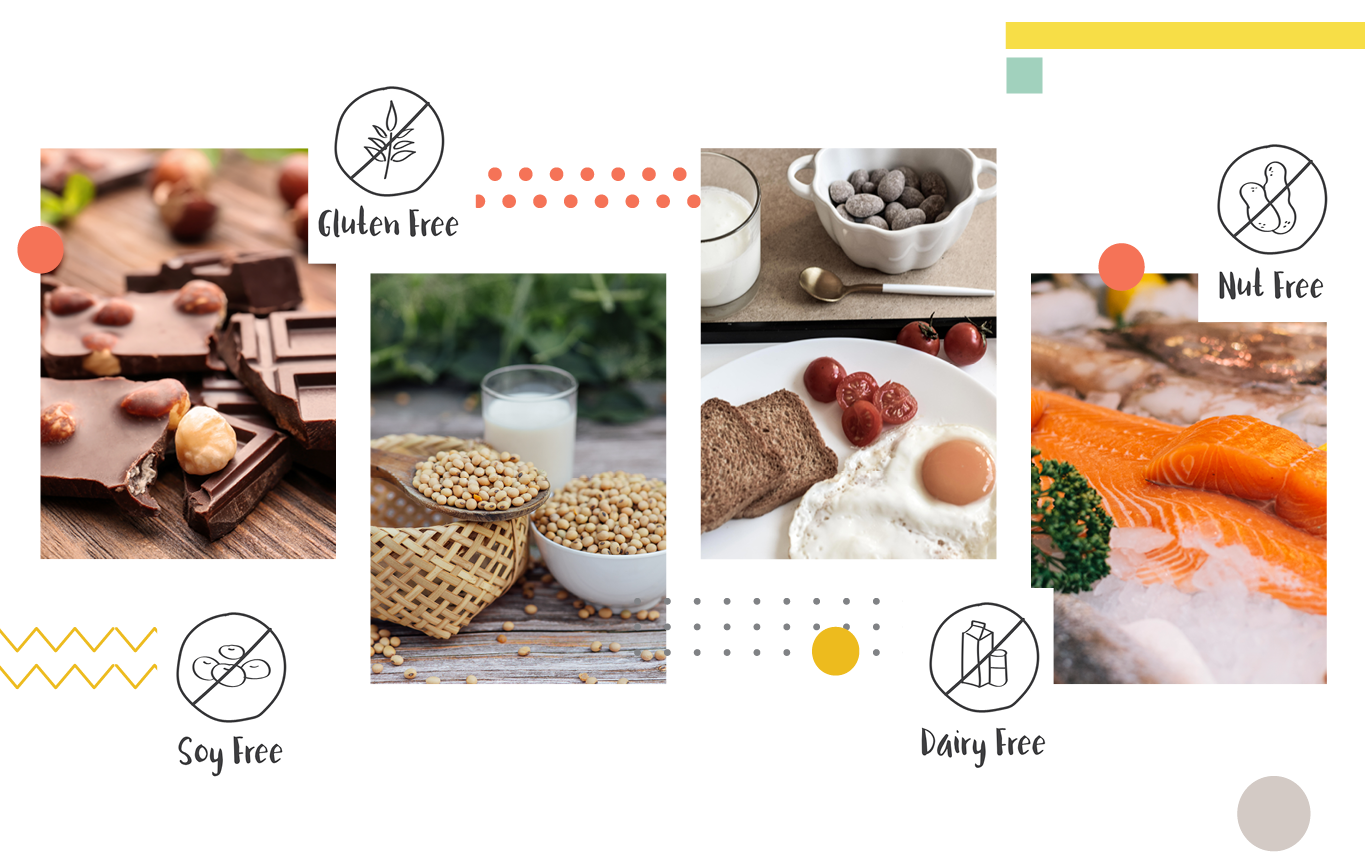Food Allergens
Allergen Testing Kits
Food allergens are among the top reasons for global food recalls, posing serious risks to public health and brand integrity. Even minimal traces of undeclared allergens can cause severe allergic reactions and regulatory violations.
At ProGnosis Biotech, we provide rapid, reliable and sustainable diagnostic solutions to help food producers ensure allergen control, consumer protection and global compliance.
Why Choose ProGnosis Biotech?
Eco-friendly Solutions
Protocol Uniformity
Quantitative Interpretation
Advanced Android
Mobile App
Portable Readers
Swabbing Kits for Surface Hygiene Control
ELISA kits ________
Allergen-Shield Series
The Allergen-Shield Series provides high-sensitivity ELISA testing for accurate quantification of allergens in diverse food matrices and surfaces. These kits are ideal for lab-based verification, ingredient validation and batch release procedures—making them a critical tool for maintaining food safety plans and certifications such as ISO 22000, IFS, BRC and HACCP.
Product Highlights:
- 30-minute uniform ELISA protocol
- Precise quantification with low LODs
- High specificity utilizing monoclonal antibodies
- Ideal for routine and regulatory compliance
- Surface swabbing kits available for residue monitoring
- Portable Reader for maximum convenience
Lateral Flow ________
Allergen Free Series
The Allergen Free Series enables rapid on-site detection of allergenic proteins in food products, CIP solutions and working surfaces. These tests are ideal for daily allergen control checks, raw material screening and sanitation verification—supporting compliance with ISO 22000, BRC, IFS and HACCP food safety standards.
Product Highlights:
- 1 extraction & protocol for all allergens
- Green eco-friendly extraction
- Quantitative and visual results
- Convenient cassette format
- Ultra – Fast 5-minute results
- Hook line for false negative prevention

Ensure Allergen Safety with ProGnosis Biotech
Rapid, sustainable and easy-to-use solutions for allergen quantification. Protecting consumer health, brand integrity and market access.
FAQ
Allergen Detection in Food Production
Allergen testing is essential for protecting allergic consumers and maintaining regulatory compliance. Undeclared allergens can trigger health crises and are a leading cause of product recalls, especially in regulated markets like the EU and the U.S. As clean-label and allergen-free claims grow in demand, testing becomes a business-critical step in food safety protocols.
Implementing consistent testing across raw materials, surfaces and finished goods helps prevent cross-contact and accidental exposure. ProGnosis Biotech’s lateral flow and ELISA solutions enable producers to act quickly and confidently at every stage of the supply chain—ensuring that their products meet both safety standards and consumer expectations.
ELISA tests provide highly sensitive, lab-based quantification and are best suited for verifying allergen levels in raw ingredients and finished goods under strict control conditions. Their detailed results support documentation for audits and compliance programs. They are often used in central labs or quality control departments that manage larger batch testing needs.
Lateral flow tests, on the other hand, are designed for fast, on-site use, with results in as little as 5 minutes. Ideal for daily checks or production line verification, they offer a practical and efficient solution for real-time allergen monitoring. Using both approaches together ensures comprehensive allergen management—from prevention to confirmation.
Yes – surface testing is a vital part of allergen control. Residues left on equipment, tools, or workstations can lead to cross-contamination and false labeling claims. As a result, regulatory bodies encourage environmental allergen monitoring as part of every robust allergen management program.
ProGnosis Biotech offers both ELISA and rapid test kits designed for effective surface allergen monitoring. These kits enable accurate sample collection from equipment, tools and workspaces, followed by precise allergen analysis. By integrating surface testing into routine sanitation protocols, food producers can verify hygiene practices, minimize cross-contact risks in shared environments and enhance traceability—ensuring full control over allergen management and regulatory compliance.

